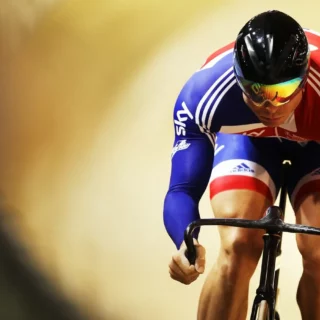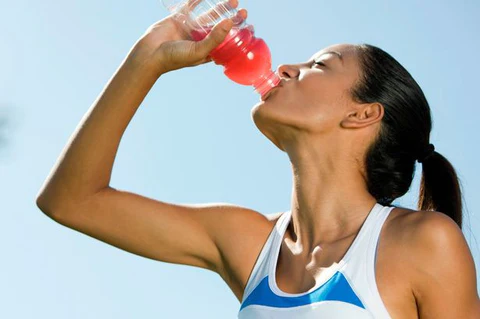This website uses cookies so that we can provide you with the best user experience possible. Cookie information is stored in your browser and performs functions such as recognising you when you return to our website and helping our team to understand which sections of the website you find most interesting and useful.

The most powerful force in the universe
July 01, 2020When Sir Dave Brailsford became head of British Cycling in 2002, the team had endured nearly a century of a mediocrity — one gold medal in its 94 year history. They had fared even worse in cycling’s biggest race, the Tour de France. In 110 years, no British cyclist had ever won the event.
In fact, the performance of the British team was so underwhelming that one European manufacturer refused to sell them bikes for fear of damaging their reputation…
But Sir Dave arrived to put British Cycling on a new trajectory. What made him different from previous coaches was his relentless commitment to a strategy that he referred to as “the aggregation of marginal gains,” that is, to seek a tiny margin of improvement in everything you do. Brailsford said, “The whole principle came from the idea that if you broke down everything you could think of that goes into riding a bike, and then improve it by 1 percent, you will get a significant increase when you put them all together.”
Brailsford and his coaches began by making small adjustments you might expect from a professional cycling team, such as asking riders to wear electrically heated overshorts to maintain ideal muscle temperature. But he didn’t stop there. Brailsford continued to find 1% improvements in overlooked and unexpected areas. They tested different types of massage gels to see which one led to the fastest muscle recovery. They hired a surgeon to teach each rider the best way to wash their hands to reduce the chances of catching a cold. They determined the type of pillow and mattress that led to the best night’s sleep for each rider. They even painted the inside of the team truck white, which helped them spot little bits of dust that would normally slip by unnoticed but could degrade the performance of the finely tuned bikes.
As these hundreds of small improvements accumulated, the results came faster than anyone could have imagined.
Just five years after Brailsford was hired, the British Cycling team dominated the road and track cycling events at the 2008 Olympic Games in Beijing, where they won an astounding 60 percent of the gold medals available. Four years later, when the Olympic Games came to London, the Brits raised the bar as they set nine Olympic records and seven world records.
That same year, Bradley Wiggins became the first British cyclist to win the Tour de France. The next year, his teammate Chris Froome won the race, and he would go on to win again in 2015, 2016, and 2017, in what is widely regarded as the most successful run in cycling history.
How does this happen? How does a team of previously ordinary athletes transform into world champions with tiny changes that, at first glance, would seem to make a modest difference at best? Why do small improvements accumulate into such remarkable results, and how can you replicate this approach to improve your own health?
Physical peak, rotten teeth…

Winning athletes love to bite their medals and smile for the cameras, but their teeth may actually be holding them back. The intense training and dietary pressures puts them at higher risk of oral health problems for a number of reasons. Athletes refuel with energy drinks, gels and bars and frequent meals, which teeth don’t like. Dehydration from sweating can also cut the production of saliva needed to remineralise tooth enamel and protect against decay.
A UCL survey at the London 2012 Olympic Games found that 18% of athletes said that their oral health had a negative impact on their performance and 46.5% had not been to the dentist in the past year. In fact, oral health complications can lead to inflammation in other parts of the body.
A new UCL study last month recruited 62 athletes in total from two Great Britain Olympic Teams. Athletes and support teams were asked to watch a 10-minute presentation which focused on building motivation to improve oral health, and three 90-second information films, featuring GB rower Zak Lee-Green. In addition, each athlete received an oral health screening to check for diseases such as tooth decay and gum inflammation. They were then given a bespoke follow up report with tailored advice and an oral health toolkit, containing a manual toothbrush, fluoride toothpaste and dental floss. At a minimum, they were also asked to brush their teeth for two minutes twice a day, before training in the morning and before bed in the evening.
At the end of the four month study, almost all athletes found that both their performance had improved, in addition to their oral health. Those who reported a zero score (meaning they had no negative sporting impact from oral health conditions ) increased from 32 to 54. Zak Lee-Green, a member of the GB Rowing Team who took part in the study, said:
“As athletes we are acutely aware of the marginal gains required to achieve peak performance and maintaining good oral health is a prime example of an area often overlooked.”
The golden power of marginal gains
Regular flossing, a hydroxyapatite toothpaste, and good brushing technique are not going to transform a weekend jogger into an Olympian… but the difference between elite athletes at the very top is often small, and marginal gains in oral health, and other seemingly unrelated aspects, can have a profound impact on results. If making incremental tweaks has worked for the likes of Pendleton, Hoy, Wiggins, it’s worth thinking about whether they can transform our busy lives into gold too…
Small adjustments can have a major impact on health, personal finances, relationships, and pretty much any other aspect of your life. Especially when compounded over time. Cut out the afternoon coffee at an average cost of £3. Yearly gain: £1095. Set the alarm clock half an hour earlier. Yearly gain: 7.6 days. And it’s not just the extra money or time, it’s the compound effect of what you do with it instead.
In the case of your dental health, applying small marginal gains like flossing daily and changing your toothbrush every quarter — which also reduces the risk of catching a cold — will not only give you some extra oomph on Strava, more importantly, it will save painful and expensive visits to the dentist in later life to replace rotten teeth with titanium screws.
Like Brailsford, concentrate on making small 1% improvements everyday, anywhere and everywhere, and achieve things you never thought possible. Your mouth is a great place to start.
In the words of Albert Einstein, “Compound interest is the most powerful force in the universe”
Bitesize news direct to your inbox.
Sign up for Bitesize, our monthly newsletter, for the latest dental tips, healthcare news and more, including 25% off your first box



